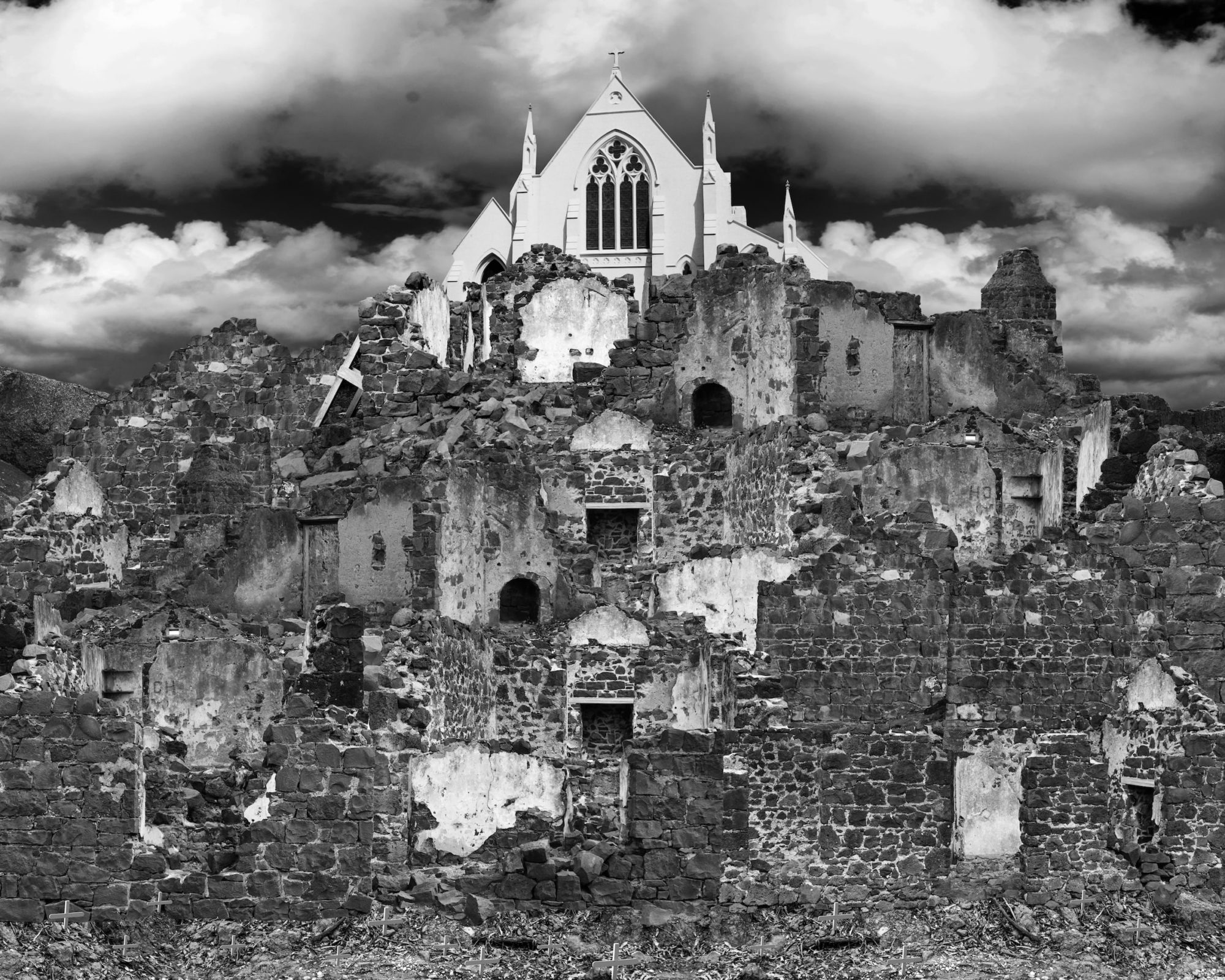
A Series of Unwarranted Events
2018
I have heard tales told, and some things I have seen that would form as dark a page as ever you could read in the book of history — but I thank God, I have never participated in them — If I could remedy these things I would speak loudly though it would cost me all I am worth in the world, but as I cannot I will keep aloof and know nothing, and say nothing.”
— Henry Howard Meyrick, Journal dated 1840–47
A Series of Unwarranted Events (2018) portrays five stories of the Gunditjmara people that expose realities of life during the colonisation of their Country. The European invasion of western Victoria – where Gunditjmara Country is located – was violent, with killings and massacres of Aboriginals too many to count. Stories of skulls nailed to doorways, and rivers running red, serve both as a haunting reminder of a past unforgiveable, and as witness to the strength and resilience of the Gunditjmara – never ceasing to submission, no matter the condition or consequence.
Aboriginality is a complex reality. The condition of colonisation has forced generations to adapt. Cultural practices have evolved into a coexistence that has seen a revival of tradition and reconnection, our stories are being re-written.
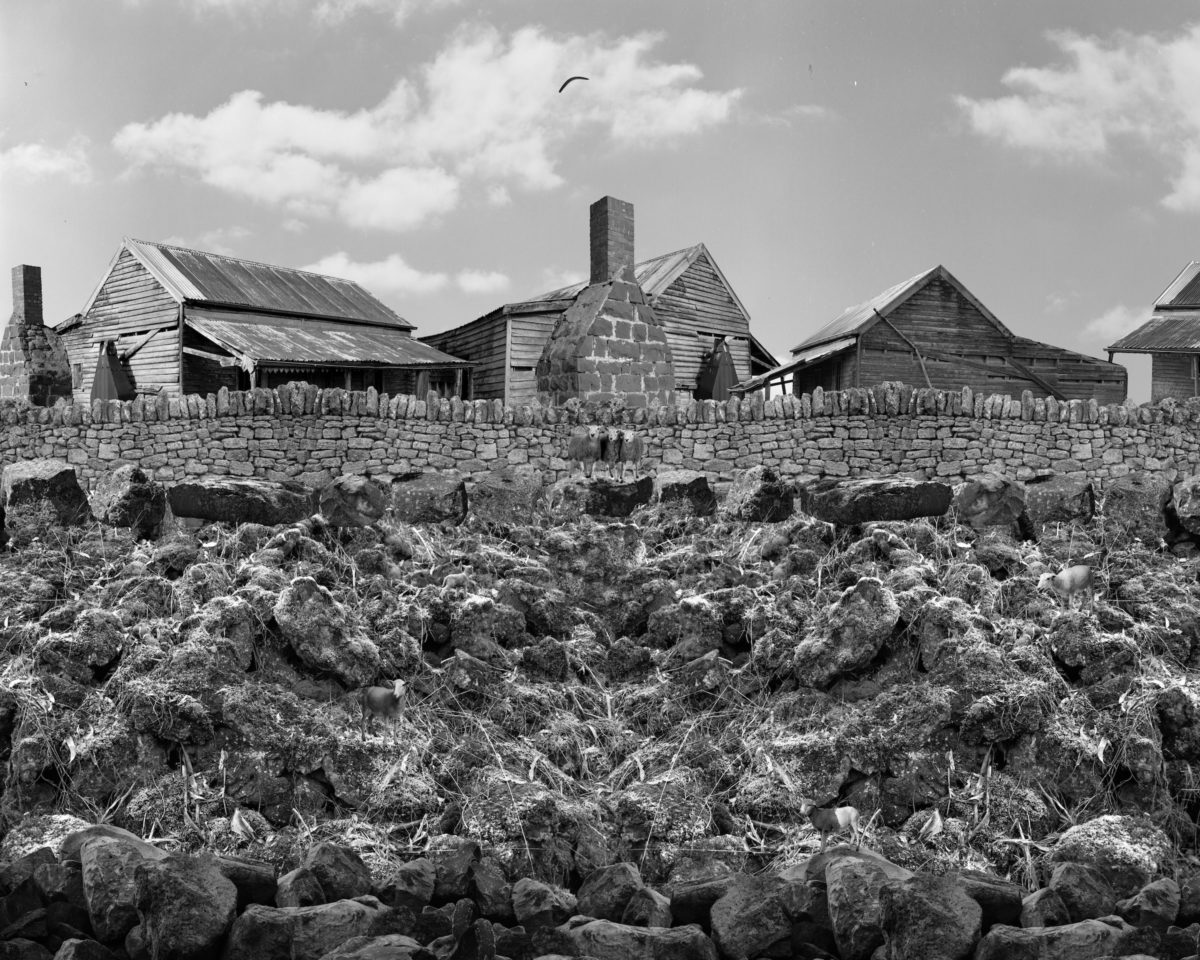
The Eumeralla Wars began on Gunditjmara Country in 1834 and continued through to 1849. During this time of frontier violence, the Gunditjmara used the large expanse of volcanic hills as a base from which they would launch their attacks and revenges against the colonisers who dispossessed them. The Eumeralla Wars witnessed countless unprovoked and redundant killings upon the Gunditjmara, too often simply in the name of eliminating the Aboriginals from Colonist view.
Untitled (The theft of the White men’s sheep) communicates stories of how the Gunditjmara would often capture livestock from the colonists’ settlements and return to camp through rocky terrain deeming the colonisers incapable of retrieving their stock without injury.
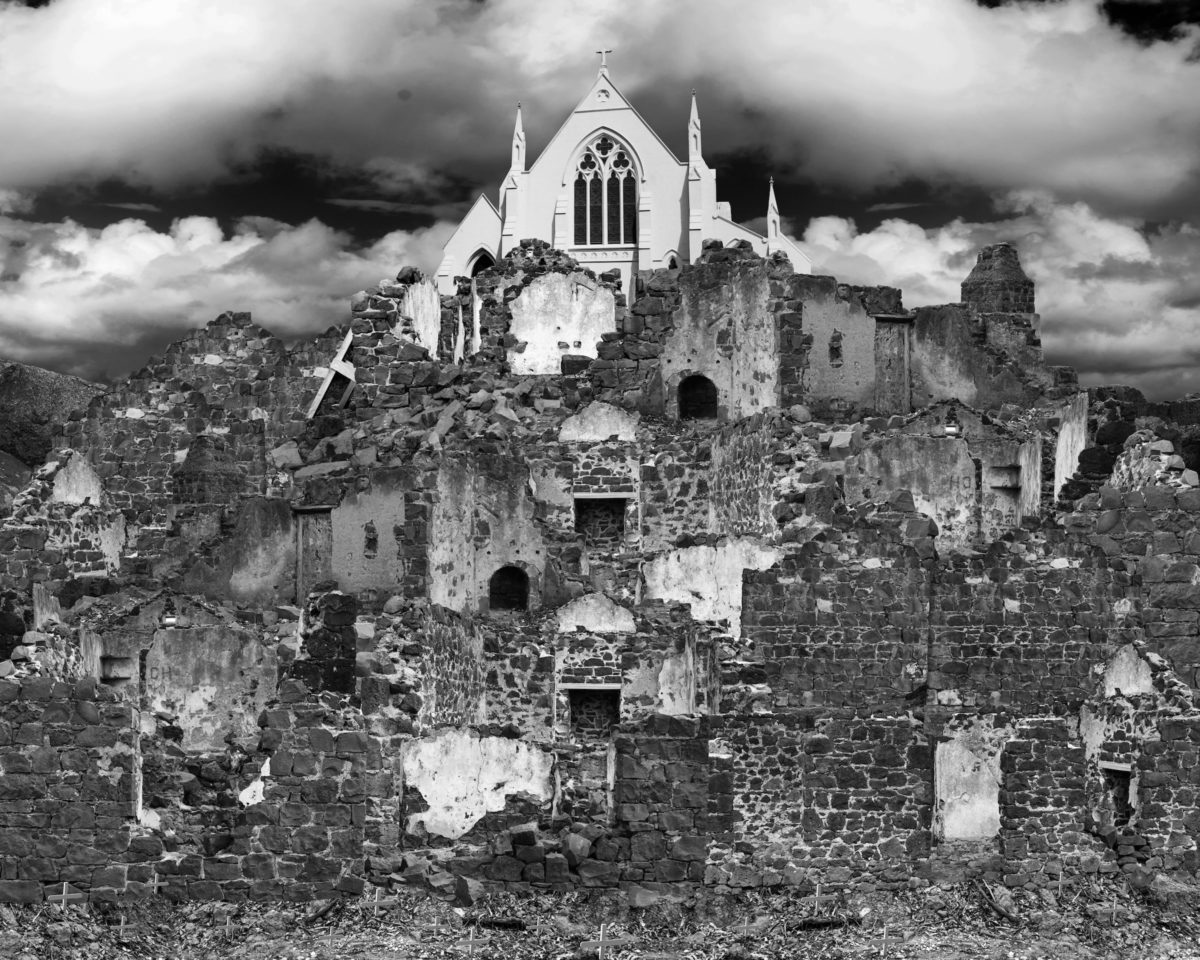
The Lake Condah Aboriginal Mission Station was built in 1867 under the leadership of the Church of England. The Church of England saw the mission as a means to ‘civilise’ the Gunditjmara people through the compulsion of Western education and Christianity. Its occupants were subject to strict regimes such as twice-daily prayers, church services and religious studies all in the hopes of a successful assimilation. The missions’ governance executed brutal policies through denying work permits to the residents, providing rations as rewards rather than a right, and operating as an institution to house stolen children.
Untitled (The best means, of caring for, and dealing with them in the future) speaks to the fatal absorption policies and mission remains, on Gunditjmara County – all in the name of Australia’s European and religious overthrow.
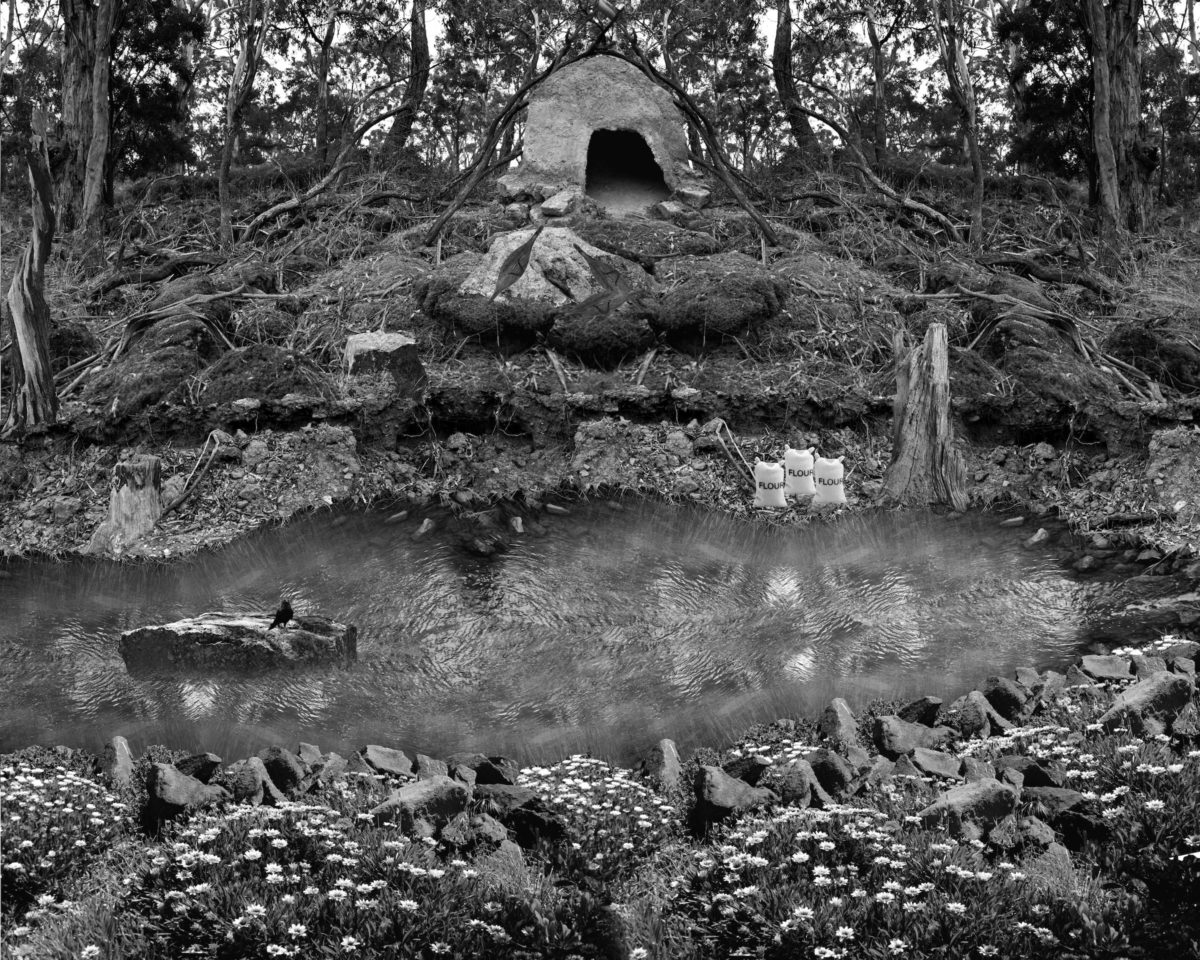
The Murdering Flat massacre occurred in 1840 on Wannon River killing dozens of Gunditjmara people. A hut keeper employed by the Henty brothers noticed that his monthly delivery of flour would often be the victim of theft at the hands of the local Aboriginal people. The Gunditjmara people would wait until the hut keeper left his station and rob his hut of flour. The hut keeper became frustrated by the raids so he mixed arsenic into the bags of flour.
Untitled (So he mixed arsenic with half the flour and a raging thirst was created) tells the story of the dozens of lost lives of the Gunditjmara people that had been poisoned making flour cakes down by Wannon River. The arsenic created an extreme thirst forcing them to rush down to the river where they drowned from the effects of the arsenic poisoning.
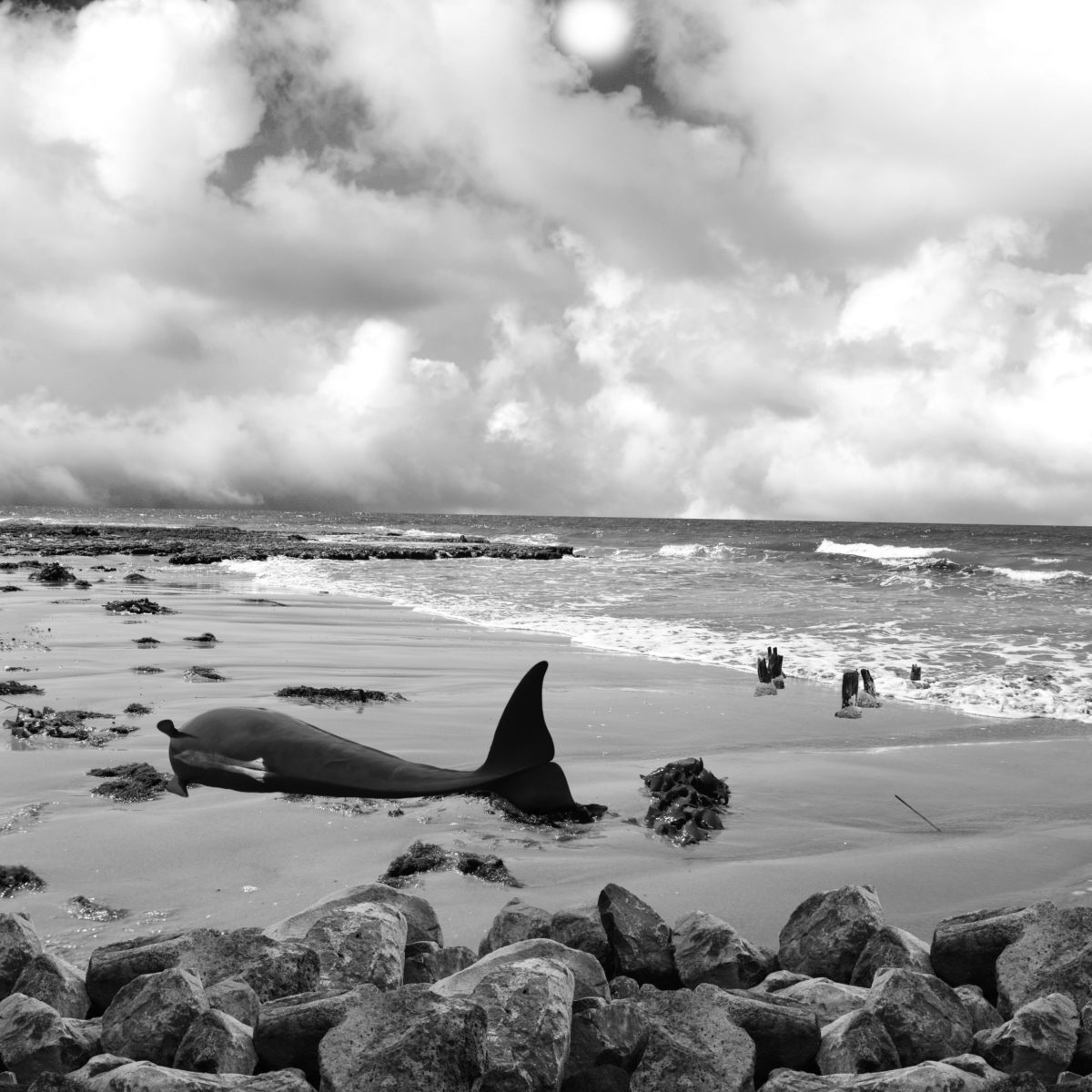
The Convincing Ground massacre took place on Allestree breach between a group of sailors and a Gunditjmara clan in 1833, however the exact date is uncertain and some people consider the Convincing Ground massacre a myth. Portland shore served the Gunditjmara people as a place of ocean abundance. The circumstances are that a whale had come on shore and a Gunditjmara clan went to collect the meat as had they for thousands of years. A group of sailors protested they had ownership of the whale as Portland belonged to them now, and so a conflict started.
Untitled (The circumstances are that a whale had come on shore) speaks to the murders of the Kilcarer Gunditj clan over the ownership of whale meat. All members of the Kilcarer Gunditj clan were murdered bar two.




